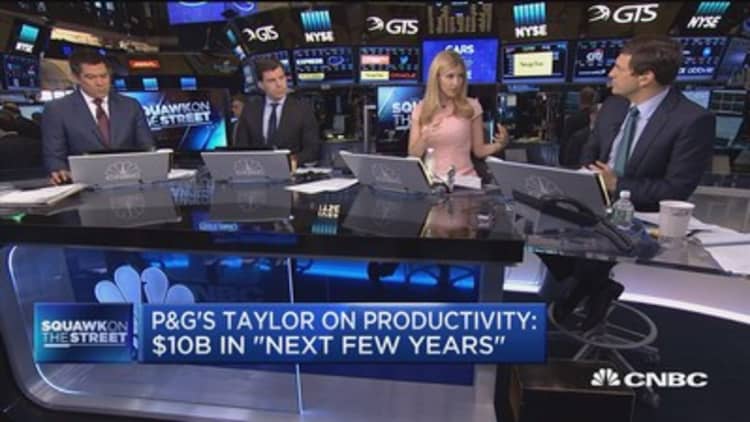
Procter & Gamble is in "ongoing constructive, active" talks with Trian Fund Management about the future of its brands, P&G Chief David Taylor told CNBC.
"We are willing to engage. We want to be better," Taylor said. He added that he is willing to take ideas from the hedge fund about how to improve its business as it does from other stakeholders.
CNBC reported in February that Trian had acquired a $3.5 billion stake in the multinational consumer goods maker. In May, a filing with the Securities and Exchange Commission showed that the fund reported it held 36.17 million P&G shares, six times that of the prior quarter.
P&G recently made an effort to focus on its core products, like Gillette razors, and shed unprofitable brands after it struggled to boost top-line growth.
Taylor told CNBC the company is moving ahead on sharpening its focus on 10 categories, including its laundry care and shaving businesses, and empowering its brand presidents to make decisions and operate independently. These decisions encompass everything from how much to invest in research and development to which markets to enter.
The P&G chief told CNBC the company continues to work on its plan to shave $10 billion in costs through productivity improvements, including reducing overhead costs and the costs of goods sold, marketing and media buying.
As for questions about whether P&G should break up into smaller companies, Taylor said that the scale of the company helps it in a variety of ways.
Trian was founded in 2005 by Nelson Peltz, Peter May and Ed Garden and it seeks to invest in high-quality but undervalued and underperforming public companies.
—Reporting by Sara Eisen. Written by Berkeley Lovelace Jr.



